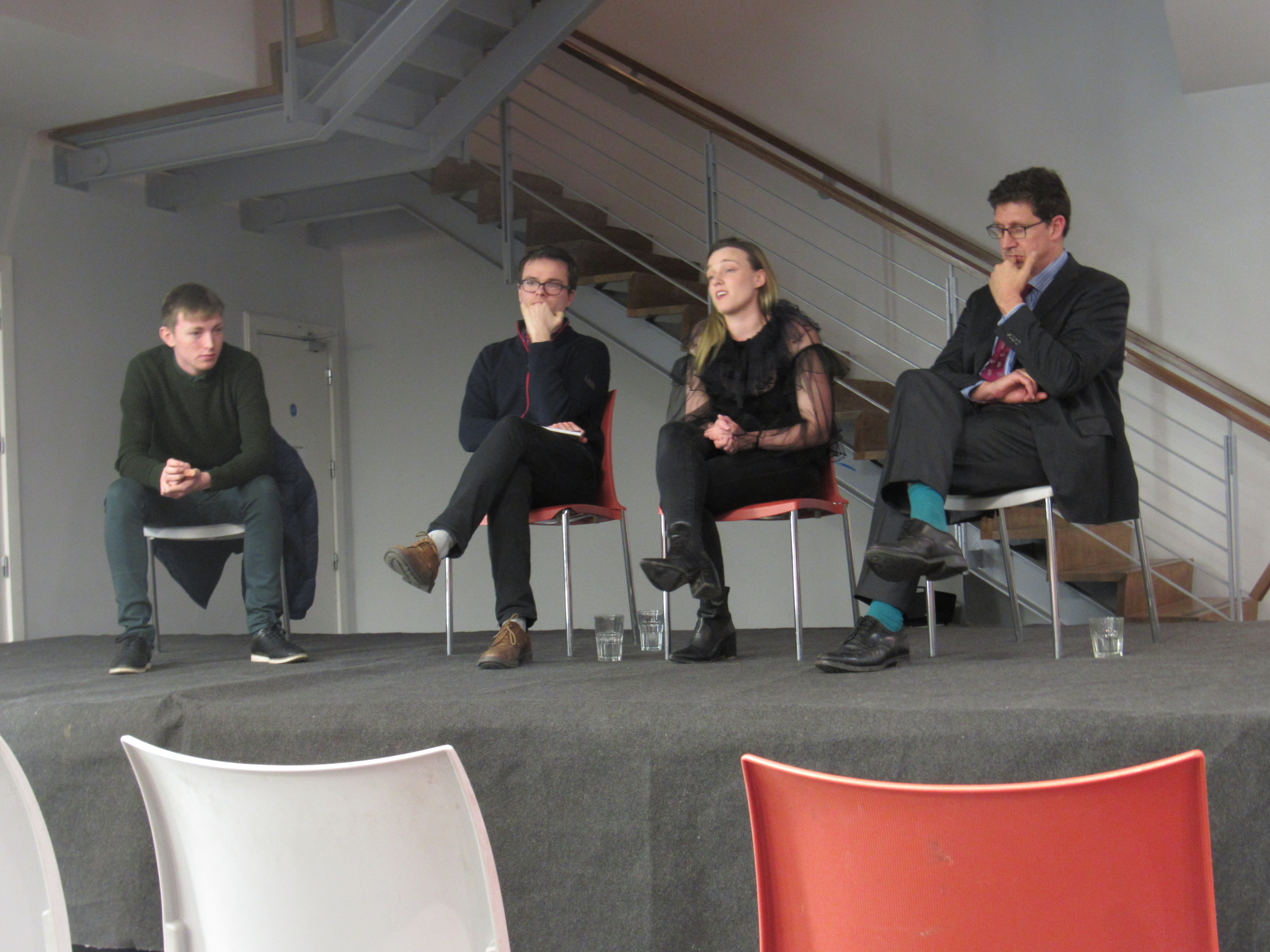Often the site of boisterous pre-drinks, blaring music and intense games of beer pong, on the evening of Tuesday 13 February 2018, the canteen of Trinity Hall was transformed into a somewhat more tranquil venue, hosting a talk entitled ‘Our Future: A Talk on Building a Greener Society’. Lined up to speak on the topic were Aisling Byrne, co-founder of Nu Wardrobe, Michéal Callaghan, co-founder of Transition Monaghan and Eamon Ryan, leader of the Green Party since 2011.
The hundred-or-so guests in attendance were welcomed by Tate Donnelly, a prominent member of the Trinity Hall Environmental Team, who expressed a great appreciation for the large turnout. He asserted that although there was free wine and an abundance of pancakes at the event, he knew that the real reason the guests had come was because of their concern over rising sea levels. After the laughter had subdued, Donnelly introduced the first speaker, Aisling Byrne.
Bryne became a co-founder of a successful, eco-friendly website called ‘the Nu Wardrobe’ rather unexpectedly. She explained how for many years, she was unconcerned with the corruption within the clothing industry and remained oblivious to its often unscrupulous nature. However, her attitude towards the industry changed drastically after a visit to a sweatshop in India revealed to her ‘the dark side to the clothing industry’. It was this revelation that inspired Byrne, along with fellow Trinity student Ali Kelly, to establish a movement that would oppose the unethical, wasteful and damaging actions of clothing companies.
At first, the pair were unsure how to provide sustainable clothing solutions for ‘broke students’. But their introduction of a ‘Swap Shop’ concept seemed to work for everyone, no matter their economic situation. Byrne explained that users of the Swap Shop, which has evolved to become ‘the Nu Wardrobe’, can simply take pictures of their clothes, post them online and then lend them to other users of the website, often in return for the loan of another item of clothing.
Next to provide his insights on building a greener society was Michéal Callaghan who co-founded the ‘Transition Town’ movement in Monaghan. Callaghan spoke about how his interest in the area was sparked at the age of sixteen while working with the European Youth Parliament (EYP) which aims to combat major world issues such as global warming. His concern over this issue, along with his interest in politics encouraged Callaghan to join the local Green Party, becoming secretary of the Monaghan party branch. Two years later, he began to campaign for eco-friendly infrastructures in his native Monaghan.
The campaign has seen great success, with a disused car park being transformed into a community garden and a dramatic increase in local knowledge regarding environmental issues. Finally, he encouraged the guests to not ‘sit on the sidelines’, ‘to get stuck in’ and he assured them that you are ‘never too young to make a difference’.
Finally, the leader of the Green Party, Ryan presented his thoughts on the matter. Ryan began by revealing the unnerving reality that during the last 50 years, we have lost 50% of our diversity in wildlife. He asserted that the environmental damage that has occurred and continues to take place is largely down to our current political and economic systems that place too much emphasis on capital. The politician stated that the Green Party is working against these ‘unfair’, ‘vulgar’ systems in order to distribute capital more fairly, make politics less pretentious and improve the global environmental situation. Ryan stressed that the party’s vision in carrying out these aims is not one of making all of these drastic changes at once.
However, Ryan contended that we must continue making small eco-friendly changes in society whilst also exploring scientific and technological solutions to environmental issues. Ryan acknowledged that phenomenal work is currently being carried out in the scientific and technological fields from Artificial Intelligence, to the modifications of genomes, to the production of green energy. Yet, he did warn that the philosophy and ethics of these scientific and technological advances must be explored. Ryan concluded the talk by stating that if these technological progressions are utilised well in conjunction with green energy then ‘we can make it work’.
As Ryan cycled out of Trinity Hall, as the guests assimilated all of the thought-provoking information that had been shared and as one particular guest grinned from ear to ear at the brand-new bike that he had won in the event’s raffle, there existed a consensus that the Trinity Hall Environmental team had organised an event that was really quite powerful.







